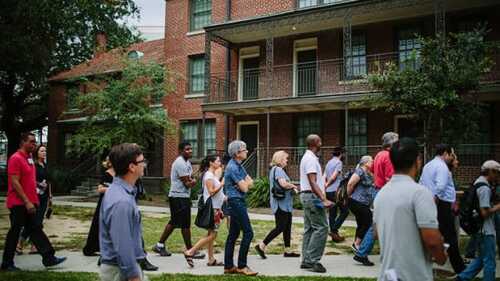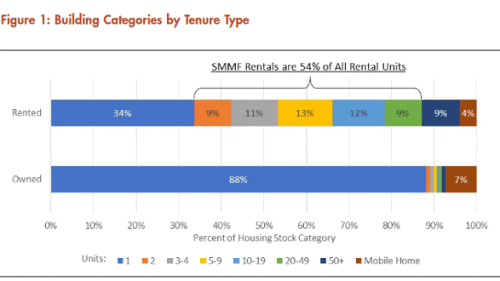Economic Development
While the $1.5 trillion tax-cut bill passed by the U.S. House of Representatives is widely seen as beneficial for commercial real estate, one provision would eliminate a municipal financing tool that has been essential for housing, infrastructure, and industrial development investment for decades.
In the wake of Hurricane Harvey, development costs—not only up and down the Gulf Coast of Texas but also in areas that escaped the storm’s wrath—are poised to jump as builders grapple with a tighter labor market and higher material costs, according to speakers at a ULI Austin event in October.
NBA champion and dedicated urban developer Earvin “Magic” Johnson Jr. is targeting a new prize—infrastructure. “If you look at infrastructure in America, it’s old,” he told the audience at the 2017 ULI Fall Meeting.
According to a new report from CBRE, investment in the U.S. data center sector reached record levels in the first half of 2017. First half of 2017 investment totaled $18.2 billion, more than double that for all of 2016 (inclusive of all single asset, portfolio and entity-level/M&A transactions). At this pace, investment in the data center sector is on track to surpass the total for the three previous years combined.
Lowell, Massachusetts, received a major boost in ongoing efforts to transform into a center of innovation when Kronos—a homegrown Massachusetts workforce management software and services company—decided to relocate its global headquarters, taking a half-million square feet (46,500 sq m) close to the city’s revitalized downtown.
More investors are warming up to the notion that mixed-income development can also be a relatively low-risk venture that offers a stable rate of return.
Venture capitalists are jumping into the growing market for technology-based solutions for the affordable housing issues that communities around the globe are facing.
Big data is becoming an important part of the real estate business, said Goh Kok Huat, COO of GIC Private Limited, formerly known as the Government of Singapore Investment Corporation, speaking at the ULI 2017 Asia Pacific Summit.
As job growth in the professional services sector has increased substantially over the past several years, office real estate investment trusts (REITs) have benefited from strong leasing fundamentals. However, more office construction and oversupply concentrated in major metro areas such as New York City, Houston, and Washington, D.C., continue to concern those in the market. Plus, interest rate survey data from Trepp.
Large, luxury apartment and condo developments have been dominating headlines and casting a big shadow over the “little guys” in rental housing. A new report released by Enterprise Community Partners and the Bedrosian Center on Governance at the University of Southern California aims to call attention to this overlooked segment of the market.








